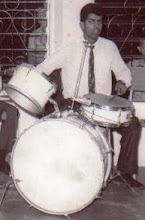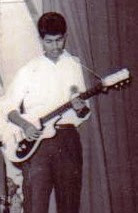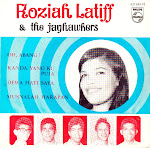



TOO LOUD AND TOO MUCH MUSIC IS NOT GOOD
(By Johami Abdullah @ Joe Chelliah)
Music pollution (a noise pollution variant) is hardly a major concern for most of us. Seriously, it should become one . Our lives are so permeated with music today that we may have just switched off listening to even good music. We hear all sorts of music voluntarily or involuntarily almost throughout our waking hours. We get it through various sources such as the radio, express buses, car stereos, handphone rings, TV stations, shopping malls, and not forgetting the amplified surat khabar lama man. Better music reproduction technology in recent times has also assured us of much higher loudness levels. Such is the extent of loud music availability these days that even silence can be a welcome relief to the tired ear.
Music hearing is taken to extreme levels at discos for people to literally “feel” the music and dance to it. This may be quite understandable for no one goes to a disco to chat. But why should it be the same, for example, at shopping areas and road shows in the form of too much continuous loud music. It can place much strain on the ear and add stress to the mind. Neither is good for us. The negative effects of too loud music are well documented. One such effect is the premature loss of one’s hearing acuity.
After a time, nature steps in and tries to help out to some extent when the mind just blocks off too loud or too familiar sounds which, though physically present, is not heard by the mind which then gives fuller attention to only any other stimuli that it perceives as novel. For example, someone who works daily in a noisy environment hardly notices the loudness after a time. It is also similar to a worker in a pig-sty who does not "smell" anything that would evoke instant vomiting in most people. This natural process, known as “masking” in psychology, serves as an emergency exit for the weary mind but damage to the ears is not spared. The twin problems of music and noise pollution should addressed right now and not in some point in the future.









































No comments:
Post a Comment